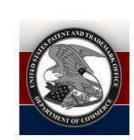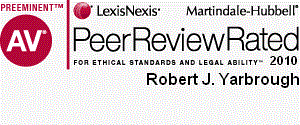Newsletter Issue 27 - May 2011
In this issue:
Who owns your invention?
New opportunities for patent applicants.
Protecting your trademark from XXX
Viacom v YouTube - The saga continues
Who owns your invention?
James Joyce (no, not the author) learned the hard
way that selecting your form of business and assigning ownership are
crucial steps in promoting an invention. Mr. Joyce invented a new
computer firewall and granted an exclusive license in the patent to TechGuard Security LLC, which was owned by Mr. Joyce and his wife.
Mr. Joyce agreed that TechGuard Security would pay him no royalty
for the license. The wife was given a controlling interest in the
corporation so that the corporation could qualify for preference in
government contracting.
Mr. Joyce and his wife subsequently divorced. The wife is now CEO of
TechGuard, which still holds the exclusive license to the patent
rights and still does not pay Mr. Joyce a royalty. Mr. Joyce is
unhappy with his lawyers, who represented both Mr. Joyce and
TechGuard at the same time. The bottom line: (a) remember that
relationships can change over time; and, (b) make sure that both you
and your lawyer understand who your lawyer represents. See
Joyce v
Armstrong Teasdale, No. 10-1362 (8th Cir. March 29, 2011).
Robert Yarbrough
New Opportunity For Patent Applicants.
Patent examiners necessarily have a limited time to spend on each
patent application and may miss the point of an invention or of the
prior art. An interview between the applicant and the examiner,
either by phone or in person, can be a useful way to educate the
examiner. Under the current system, the only opportunity for an
interview comes late in the review process. Correcting the
examiner's misperceptions late in the process frequently requires
the applicant to file a 'request for continuing examination' and to
undergo the resulting cost and delay.In a pilot program that began May 16, 2011, any patent applicant can have an interview with the patent examiner early in the process BEFORE the examiner issues the first office action. This pilot program will run for one year. There are requirements, principally that the application have no more than three independent claims and twenty claims total and that the applicant agree to shortened times for response. The notice from the PTO is unclear as to whether the applicant is entitled to a second interview with the examiner after the office action is issued.
The pre-action interview program does not accelerate examination and review will take just as long as before. The pilot program nonetheless has the advantage of increasing the effectiveness of patent examination and reduce the ultimate cost of prosecuting a patent application. We recommend that you consider a pre-action interview for your patent application.
Robert Yarbrough
Protecting your trademark from XXX
To
bring some protection from unintended exposure to pornographic
websites, the international body that administers the Internet
Domain Name system has approved a new domain: .xxx (dot triple-x).
New to this domain will be a way to block the triple-x registration
of certain domains, without actually having to acquire them, as is
now the norm for other Internet domains. Thus, instead of the of a
trademark owner having to actually own the "trademark.xxx" domain,
the owner may simply pay a one-time fee to prevent others from
registering the trademark as a triple-x site.
The registrar for triple-x expects to use a "sunrise" period in
early September 2011. For 30 days, those having registered
trademarks and wishing to register actual triple-x domains will be
able to participate in the "Sunrise A" process. At the same time,
those wishing to block triple-x registration will participate in the
"Sunrise B" process. After the 30 day sunrise period, there will be
a "landrush" period of 14 days for anyone to register in triple-x.
Thus, for adult websites with registered trademarks that now operate
in other domains, they will be able to claim the same name in
triple-x, and for those who never want to have their mark associated
with anything in triple-x, they may block future registrations. Miss
the window, and you may have to resort to the standard domain name
dispute process to reclaim your trademark rights.
To register for the block in Sunrise B, a trademark owner must have
at least one national trademark registration for the exact word to
be blocked. Thus, Coca Cola may block "Coke.xxx" but not
"CokePorn.xxx". Those who want to block registrations but who don't
have a registration of the trademark may want to consider a quick
foreign registration, because backlogs at the United States
Trademark Office extend beyond the Sunrise B period at present.
The expected fee for blocking during Sunrise B is in the range of
$200-$300, but final pricing has not been announced.
For more detailed information on how to protect your trademark,
contact one of the attorneys at LW&H. For information about the
triple-x blocking process, you may check the site
www.XXXempt.com.
Adam Garson
Viacom v YouTube: The saga continues.
 YouTube
is no stranger to copyright infringement issues. In 2008, Viacom
filed a $1 billion copyright infringement suit against YouTube,
claiming that the video site contributed to an
explosion of
copyright infringement by permitting users to post infringing
videos. The federal district court eventually dismissed Viacom's
action against YouTube on grounds that the Digital Millennium
Copyright Act's (DMCA) safe harbor provisions protected YouTube from
liability. You may recall that we've written about the safe harbor
provisions of the DMCA in this newsletter. Under the the safe harbor
provisions, web site owners are immune from liability arising out of
materials uploaded by others unless the site owners know about
infringing materials and fail to take action. In Viacom, the U.S.
District court held that YouTube's executives had only general
knowledge of infringing activities, which was not specific enough to
trigger liability under the DMCA.
YouTube
is no stranger to copyright infringement issues. In 2008, Viacom
filed a $1 billion copyright infringement suit against YouTube,
claiming that the video site contributed to an
explosion of
copyright infringement by permitting users to post infringing
videos. The federal district court eventually dismissed Viacom's
action against YouTube on grounds that the Digital Millennium
Copyright Act's (DMCA) safe harbor provisions protected YouTube from
liability. You may recall that we've written about the safe harbor
provisions of the DMCA in this newsletter. Under the the safe harbor
provisions, web site owners are immune from liability arising out of
materials uploaded by others unless the site owners know about
infringing materials and fail to take action. In Viacom, the U.S.
District court held that YouTube's executives had only general
knowledge of infringing activities, which was not specific enough to
trigger liability under the DMCA.
Viacom has not surrendered. In December 2010, it filed an appeal
with the U.S. Court of Appeals for the Second Circuit and in early
May 2011, the last round of briefs were filed. The case is now ready
for decision.
Since the filing of Viacom's lawsuit, YouTube has not remained idle.
It has strengthened its anti-infringement efforts by creating a copyright
school for users subject to at least three copyright complaints,
requiring them to watch a video and pass a short multiple-choice
test.
strengthened its anti-infringement efforts by creating a copyright
school for users subject to at least three copyright complaints,
requiring them to watch a video and pass a short multiple-choice
test.
These efforts were mocked by Viacom in its closing brief:
That the YouTube of today is increasingly effective in filtering copyrighted material and sends infringing users to "copyright school" is of no moment, except perhaps to demonstrate what YouTube could have been doing during the time period that is at issue in this lawsuit, from YouTube's launch in 2005 to May 2008.
We now await the decision of the appeals court.
Adam Garson

